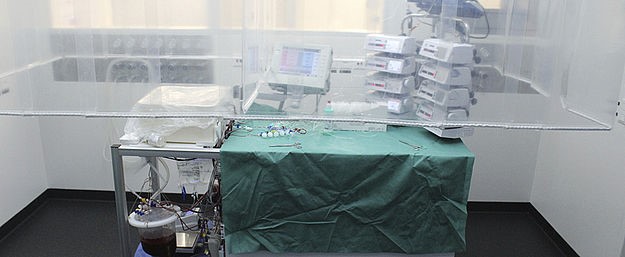
A multidisciplinary research group from Zurich has made a breakthrough in transplantation medicine: they have developed a machine allowing donor livers to be kept alive for seven days. Up until now, livers could only be stored safely outside of the human body for a matter of hours.
In essence, the machine almost imitates the human body, thereby offering the donor livers the perfect conditions, a press release on the development of the machine outlines. For example, a pump acts as a replacement heart, an oxygenator functions as a replacement for the lungs and a dialysis unit works in place of the kidneys. The functions of the intestines and pancreas are taken on by a range of hormone and nutrient infusions. The machine also moves the livers to replicate the rhythm of human breathing. The technology can also be remotely operated if necessary, according to the information available.
This development now makes it possible for doctors to treat donor livers outside of the human body. In this way, defective livers can be saved and subsequently transplanted. This is a particularly significant advancement, as functional donor livers are needed urgently. The data suggests that in Switzerland around two to three times as many people are currently waiting on the liver transplant list than there are actually livers available for transplantation.
This machine has been developed as part of the Liver4Life project under the umbrella of the Wyss Zurich institute. For this, experts from the Swiss Federal Institute of Technology in Zurich (ETH), University Hospital Zurich (USZ) and the University of Zurich (UZH) all collaborated. The researchers expect that the first liver treated by this new process could be used in 2020.
More news
Meet with an expansion expert
Our services are free of charge and include:
- Introduction to key contacts in industry, academia, and government
- Advice on regulatory framework, taxes, labor, market, and setting up a company
- Custom-made fact-finding visits, including office and co-working space